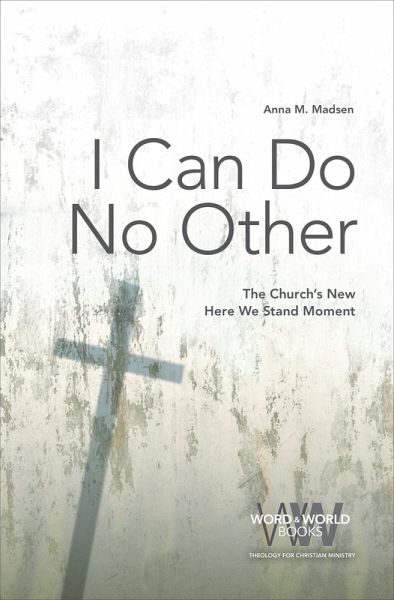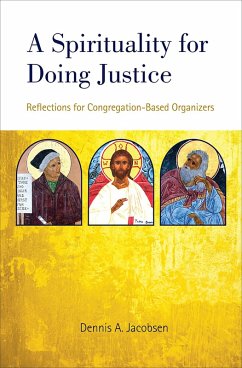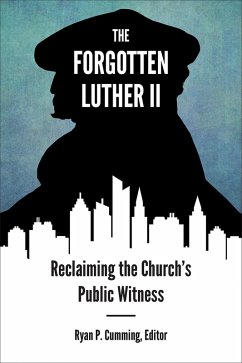
I Can Do No Other (eBook, ePUB)
The Church''s New Here We Stand Moment

PAYBACK Punkte
6 °P sammeln!
Author Anna M. Madsen's book is a fresh and challenging look at the legacy of Martin Luther and the new reformation that is calling people of faith to action today. This book is born out of the conviction that at least two gods are currently competing for our collective trust: nationalism (and its many sub-manifestations) and quietism. Both make a case for and a claim on our allegiance, each by way of different motivations of self and institutional protection. Madsen looks at today's modern context and asks: Where will the church stand in a day that is marked by globalization, polarization, ra...
Author Anna M. Madsen's book is a fresh and challenging look at the legacy of Martin Luther and the new reformation that is calling people of faith to action today. This book is born out of the conviction that at least two gods are currently competing for our collective trust: nationalism (and its many sub-manifestations) and quietism. Both make a case for and a claim on our allegiance, each by way of different motivations of self and institutional protection. Madsen looks at today's modern context and asks: Where will the church stand in a day that is marked by globalization, polarization, racism, bigotry, and debates about justice for humanity and for the earth itself. While the Reformation church was built on the foundation of justification by grace, Madsen calls people of faith to a new reformation that will focus on standing for justice in the world. Madsen delves into who Jesus was, and how our claim that he died and was raised establishes our faith and impacts the way we live it out. She pays attention to Luther's theology and juxtaposes it with our present context. She explores recent examples of Nazi resistance, liberation theology, black and womanist theology, and feminist theology, each of which come at social justice in their unique ways, with a common conviction that justice work is central to the Christian life. She speaks of how our faith grounding and our faith history weave together and entwine themselves into our present moment, offering both warnings and encouragement. And last, a case is made that justice, anchored in justification, is our new Reformation moment, one not inconsistent with Luther's theology, but weighted differently to address the different weighty concerns of our day. A study guide is included to encourage group conversation and action.
Dieser Download kann aus rechtlichen Gründen nur mit Rechnungsadresse in A, B, BG, CY, CZ, D, DK, EW, E, FIN, F, GR, HR, H, IRL, I, LT, L, LR, M, NL, PL, P, R, S, SLO, SK ausgeliefert werden.













